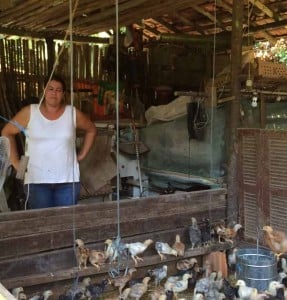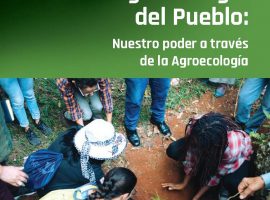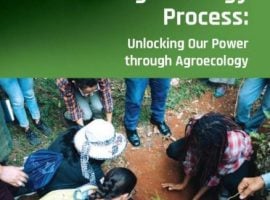Alison Cohen is WhyHunger’s Senior Director of Programs. This post originally appeared on Care2.
 Sueli and her chickens, nearly ready to distribute to other families in her base group.
Sueli and her chickens, nearly ready to distribute to other families in her base group.
“A dignified life,” according to our campesina host Sueli during a recent site visit to her rural home along the Ribeira river in Brazil, “is one where you can work to produce food — enough to feed the family and to sell at the market; one where you can build and live in a comfortable house that will protect you from the rain; one where our children have access to education in the rural areas, and a transportation system so we can get to school and the market. Oh — and of course — one where you have good health.”
It was February, and www. staff and partners from the United States were in Brazil to attend the VI National Congress of the Landless Workers Movement (MST). But just prior to the historic event that would bring together 17,000 campesinos for five days to camp, eat, celebrate, march and learn together in the capital of Brasilia, we had stepped out and were driving down a dusty road with our colleagues from MAB (the Movement of Dam Affected People). An extraordinary opportunity to learn more about MAB’s work and to witness firsthand the role of social movements and agroecology in improving lives today and changing systems for tomorrow, we were excited to take this first step to deepening our relationship with and support of this massive peasant-led movement.
Read more on Care2.





